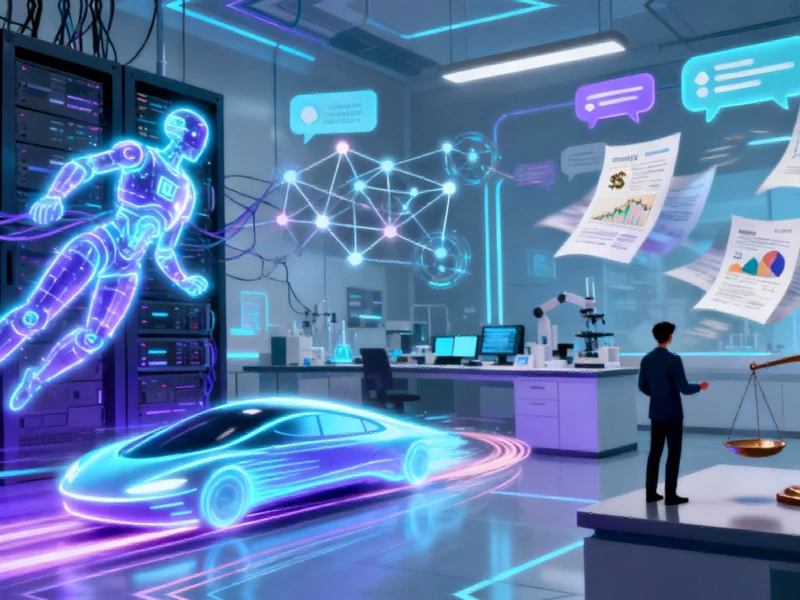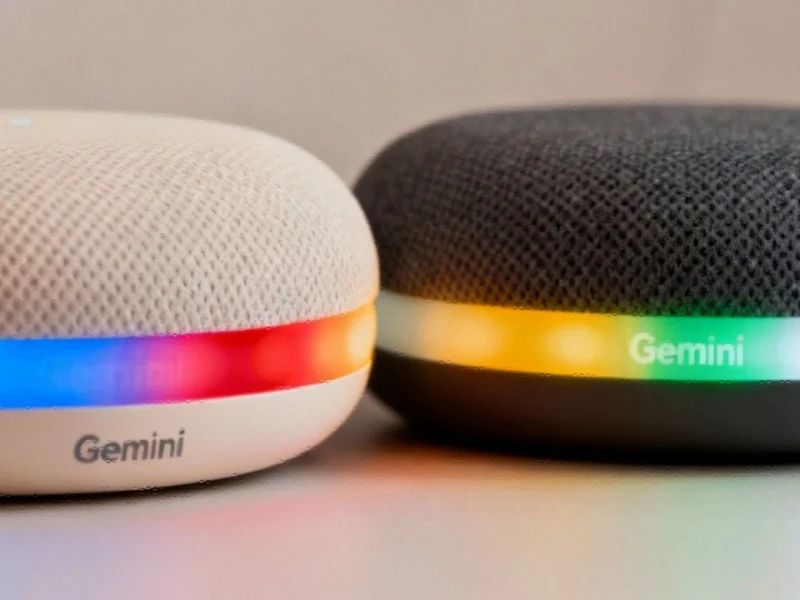In a landmark announcement that signals a pivotal moment for the music industry, Spotify has issued a stark warning: either the sector proactively shapes artificial intelligence development or faces a future where AI innovation occurs “without rights, consent, or compensation.” The streaming giant’s position comes as it reveals new partnerships with major music rights holders to develop artist-first AI tools that respect creative rights.
Spotify’s Thursday press release struck a defiant tone against elements of the AI industry that “believe copyright should be abolished,” emphasizing that “musicians’ rights matter” and “copyright is essential.” This stance echoes broader industry concerns about protecting creative works in the digital age, similar to how technology companies are increasingly recognizing the need for responsible innovation across sectors.
“If the music industry doesn’t lead in this moment, AI-powered innovation will happen elsewhere,” Spotify cautioned, highlighting the urgent need for industry-wide collaboration. The company positioned itself as a responsible actor in the AI landscape, committing to work with rights holders to ensure artists and songwriters benefit from technological advancements rather than being exploited by them.
Industry Partnerships for Responsible AI Development
Spotify revealed it is joining forces with Sony Music Group, Universal Music Group, Warner Music Group, Merlin, and Believe to create what it describes as “responsible AI products that empower the artists and songwriters they represent.” This collaborative approach marks a significant departure from the go-it-alone strategies employed by some technology companies.
The partnership aims to develop AI tools that enhance rather than replace human creativity, focusing on connecting artists with their fans through innovative experiences. “We are making significant investments in AI research and product development,” Spotify confirmed, noting it has begun building a “state-of-the-art generative AI research lab and product team” dedicated to creating technologies aligned with its principles.
The Broader AI Copyright Landscape
Spotify’s announcement comes amid growing tension between AI developers and content creators across multiple industries. OpenAI and Anthropic have faced numerous lawsuits alleging they trained their AI models on copyrighted material without proper authorization or compensation. These legal challenges highlight the complex intersection of innovation and intellectual property rights that extends beyond music to other creative fields.
The situation mirrors concerns in other technology sectors where rapid innovation sometimes outpaces regulatory frameworks. For instance, Microsoft recently emphasized that users serve as the primary defense against emerging threats, suggesting that responsible technology deployment requires multiple layers of protection and accountability.
Recent AI Controversies and Industry Response
OpenAI found itself in hot water again with the release of Sora 2, its text-to-video application. Shortly after users gained access, videos featuring prominent animated characters and major brand elements began appearing online without authorization. The Motion Picture Association responded by demanding “immediate and direct” action from OpenAI to address the copyright infringement issues.
“While OpenAI clarified it will ‘soon’ offer rightsholders more control over character generation, they must acknowledge it remains their responsibility—not rightsholders’—to prevent infringement on the Sora 2 service,” the association stated this month. This ongoing tension between AI developers and content creators reflects broader challenges facing multiple industries as they adapt to technological disruption, including how local governments are navigating pressure regarding national initiatives and the impact of regulatory decisions on local businesses.
Financial and Regulatory Implications
The debate over AI and copyright occurs against a backdrop of financial market uncertainty and regulatory evolution. As European banking stocks retreat amid US regional banking concerns, the technology sector faces increasing scrutiny about how AI development might affect various industries’ economic stability.
Meanwhile, major technology companies continue to roll out new products and integrations, with Apple’s recent M5 chipset and Mac announcements and Claude’s integration with Microsoft 365 demonstrating the rapid pace of technological advancement that copyright frameworks must accommodate.
The Path Forward for Music and AI
Spotify’s partnership initiative represents what many industry observers see as a more sustainable approach to AI integration in creative fields. By working directly with rights holders from the outset, the company aims to avoid the legal battles and ethical dilemmas that have plagued other AI developers.
“Stamping out the worst outcomes of Gen AI is an essential piece of the puzzle,” Spotify noted in its release, suggesting that proactive measures now could prevent more significant problems later. The company’s emphasis on developing AI tools that reflect its principles while creating “breakthrough experiences for fans and artists” indicates a recognition that technological innovation and creative rights protection must advance together rather than in opposition.
As the music industry navigates this transformative period, Spotify’s warning serves as both a caution and a call to action: embrace AI responsibly or risk being sidelined by developments that prioritize innovation over rights. The success of this collaborative approach could set important precedents for how technology and creative industries coexist in the AI era.
Based on reporting by {‘uri’: ‘businessinsider.com’, ‘dataType’: ‘news’, ‘title’: ‘Business Insider’, ‘description’: ‘The latest news from International on Business Insider’, ‘location’: {‘type’: ‘place’, ‘geoNamesId’: ‘5128581’, ‘label’: {‘eng’: ‘New York City’}, ‘population’: 8175133, ‘lat’: 40.71427, ‘long’: -74.00597, ‘country’: {‘type’: ‘country’, ‘geoNamesId’: ‘6252001’, ‘label’: {‘eng’: ‘United States’}, ‘population’: 310232863, ‘lat’: 39.76, ‘long’: -98.5, ‘area’: 9629091, ‘continent’: ‘Noth America’}}, ‘locationValidated’: False, ‘ranking’: {‘importanceRank’: 13896, ‘alexaGlobalRank’: 234, ‘alexaCountryRank’: 92}}. This article aggregates information from publicly available sources. All trademarks and copyrights belong to their respective owners.



